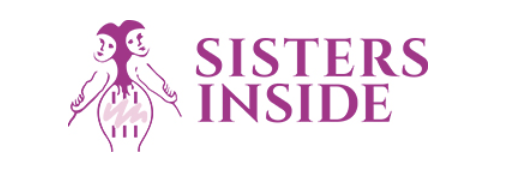Leading human rights campaigner Debbie Kilroy has slammed Australia’s social work system saying it is complicit in caging, criminalising and containing Aboriginal and Torres Strait Islander women and children.
Speaking at the La Trobe University Leadership in Social Work Conference, Ms Kilroy said over the past 30 years social workers had become central to the provision of services to Aboriginal and Torres Strait Islander peoples and in turn their practices had contributed directly to the mass incarceration of Aboriginal and Torres Strait Islander women and children.
‘As a profession we are the problem,’ Ms Kilroy said.
Ms Kilroy, who heads up Sisters Inside which advocates for women and girls in the criminal legal system, said social workers in schools had become part of a punitive process suspending, expelling and even detaining children in detention.
‘In what way is this honouring the young person’s self-determination,’ Ms Kilroy said.
‘There needs to be a nation-wide commitment to changing the profession which currently feeds into the whole unjust social structure in this country.’
Ms Kilroy, who is also a qualified social worker and lawyer said Aboriginal and Torres Strait Islander women and children have been systematically stripped of culturally-driven services run by community in favour of mainstream agencies providing ‘fly in/fly out’ services which were at best useless but were more often harmful.
‘The truth is family policing does not protect children. The child welfare system does not protect children. And there are racial disparities of who is subjected to the mandates of the children protection system,’ Ms Kilroy said.
‘Our experience at Sisters Inside is that most Black women are criminalised for being poor and then punished by child related protective services as opposed to wrapping self-determined, family driven care around the family.’
Ms Kilroy called on social workers to radically rethink the place and purpose of their role.
‘The system needs to recognise the vast majority of criminalised women have a history of abuse as a child and/or adult, almost all have lived in poverty for most of their lives and the majority have a history of homelessness,’ Ms Kilroy said.
‘Many have a family history of criminalisation, most have been in prison before, some have an intellectual disability, and many have a cognitive disability.’
‘On top of these things many have chronic health conditions including mental health issues.’
Ms Kilroy said the profession needed to unpack the real reason for women’s criminalisation and demand a new model for supporting women and children.
‘Their situation is not a personal failure,’ Ms Kilroy said. ‘It is a consequence of toxic social, economic and political systems.’
Ms Kilroy said a significant proportion of social work practice enforced outcomes on women who were often not present during case meetings.
‘So many services are provided under threat of child removal or return to prison or loss of income – hardly voluntary,’ Ms Kilroy said.
‘At Sisters Inside we regularly experience social workers from other agencies who resist advocacy by, with or for the women themselves by opposing women attending meetings about them, opposing the women bringing a support person and withholding information from women.’
She said it was time for social workers to stop recommending the removal of children for the consequences of poverty alone, instead focus on finding the resources parents needed to meet the needs of their families.
‘Where children are genuinely at risk of violence, provide individual advocacy for family members whose criminal history is non-violent and place children in kinship care,’ Ms Kilroy said.
‘The profession needs to stop creating endless barriers and impossible goals for criminalised women who have not abused their children so they can regain full custody.’
‘I got into social work to liberate people, not help lock them up or to further exile them from community.’
‘Let us use our power in this system for good and to pave a liberatory pathway for us all.’
Learn more about Sisters Inside here: sistersinside.com.au
How can you help?
The Sisters Inside Fund for Children supports children of women in the criminal justice system to choose their own future free of the burdens so commonly felt while their mother is in prison.
#Free Her Campaign
This campaign has been set up by Debbie Kilroy, CEO of Sisters Inside Inc. The funds raised will be used to release people from prison and pay warrants so they are not imprisoned.

